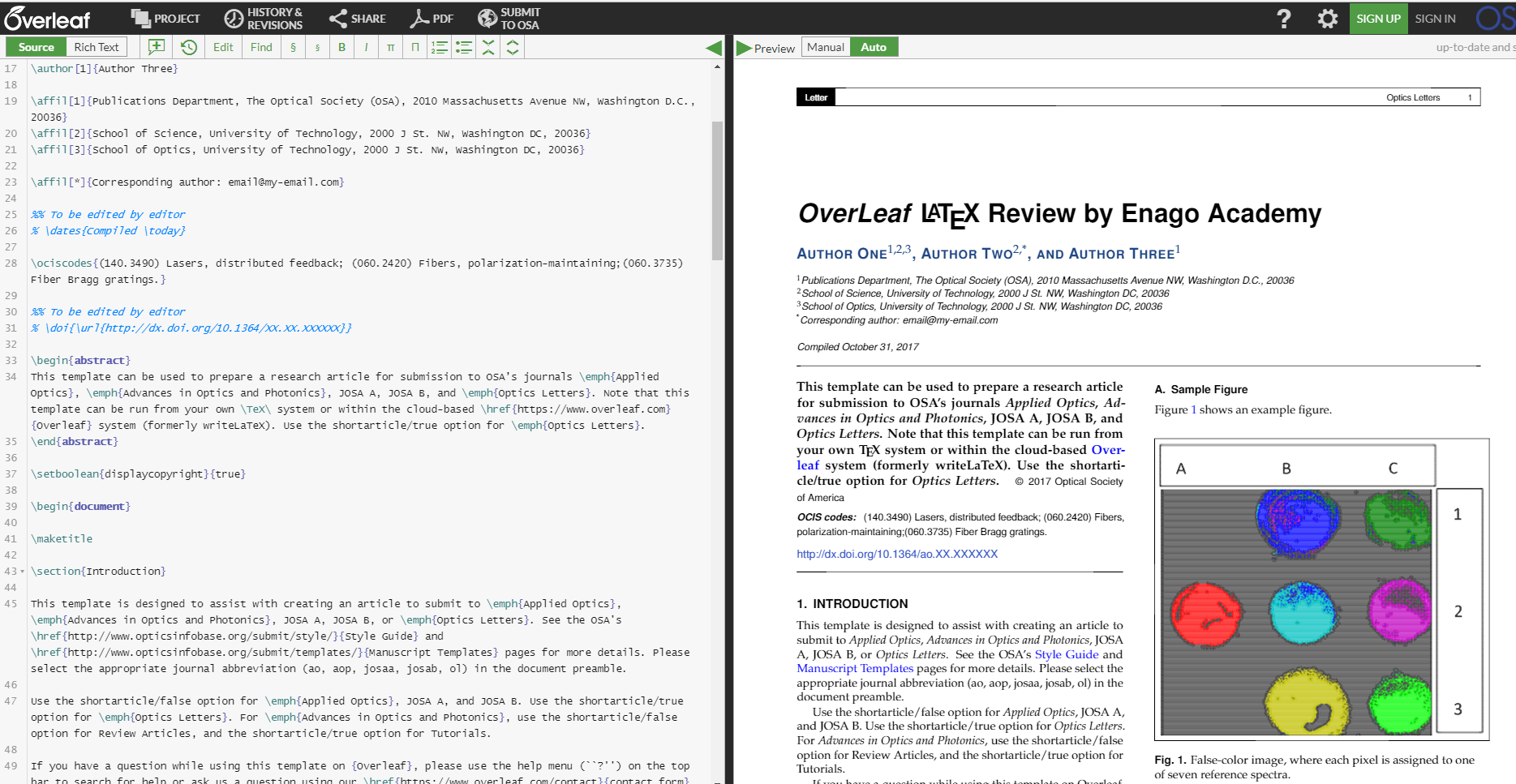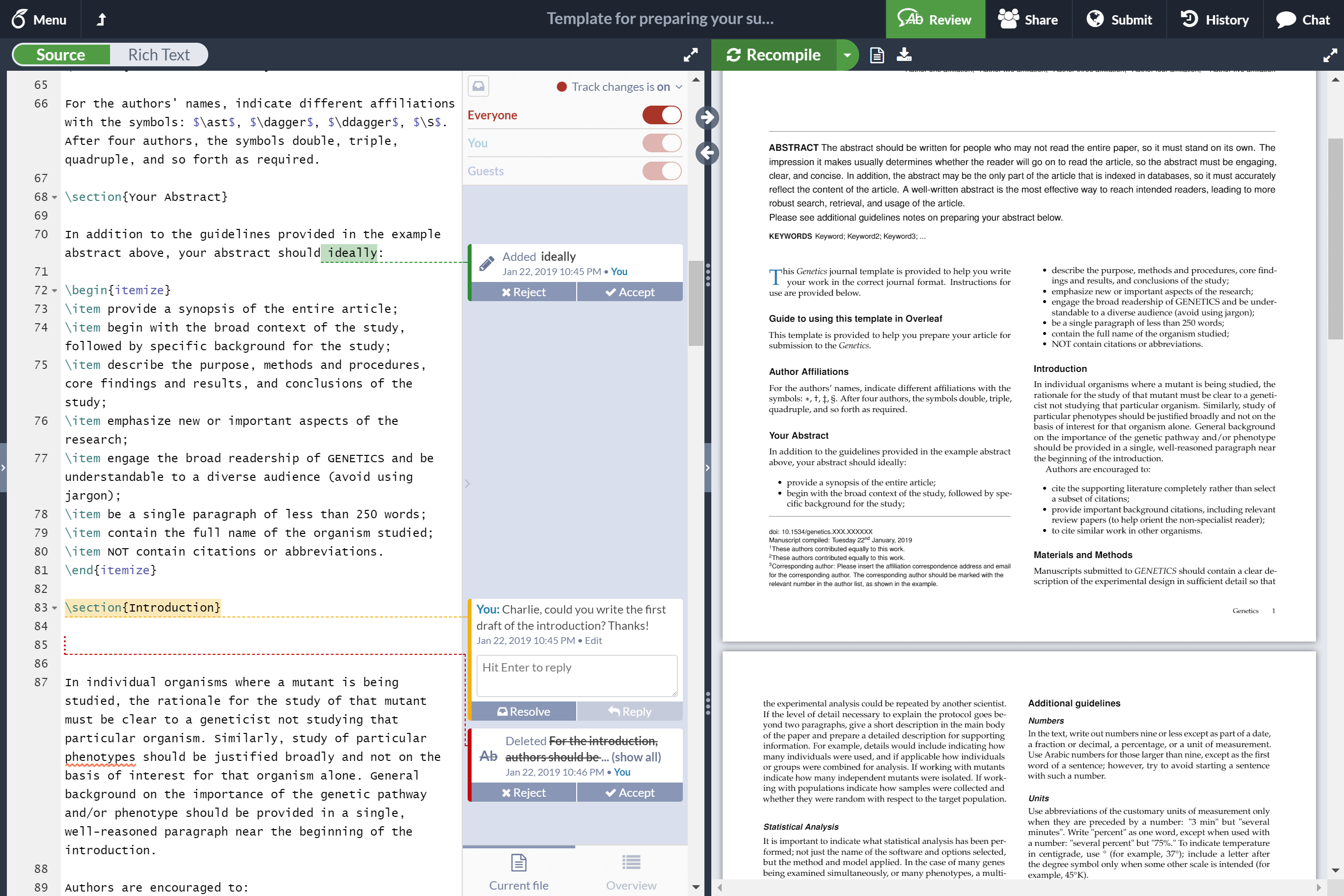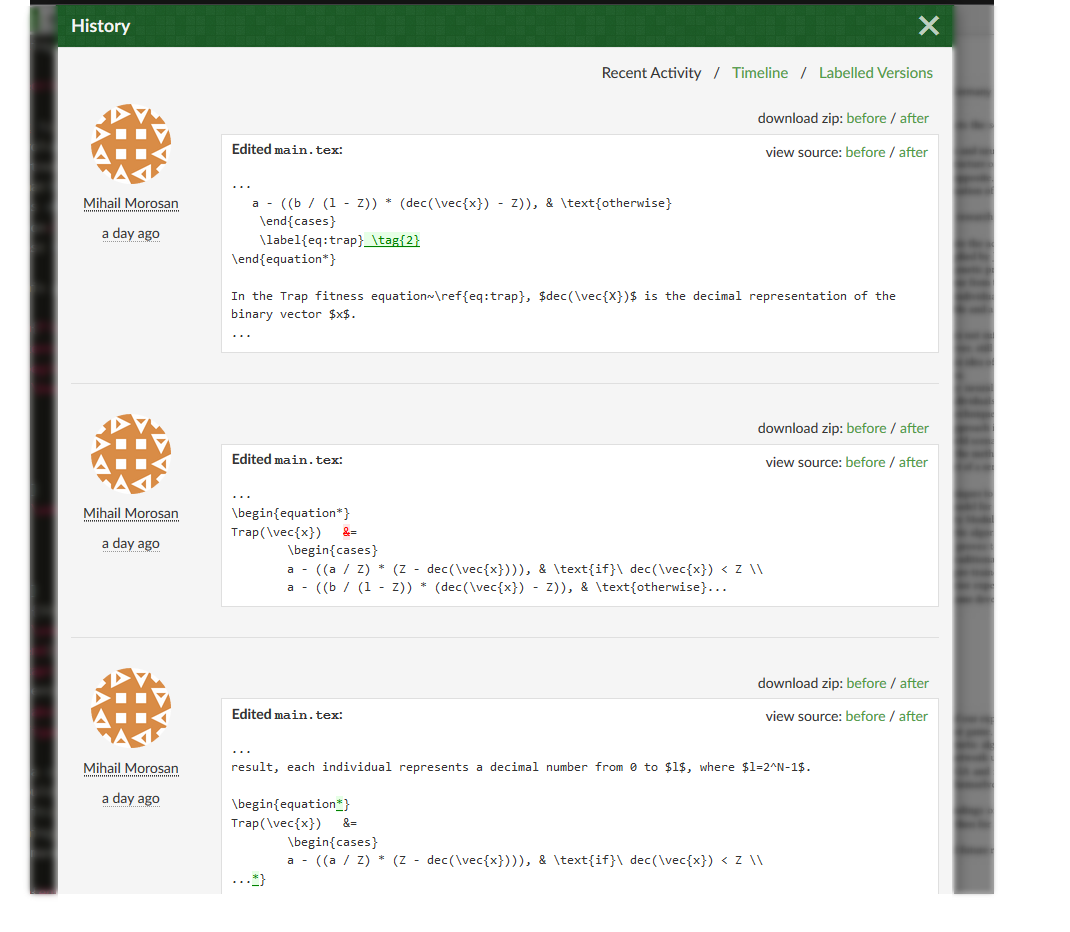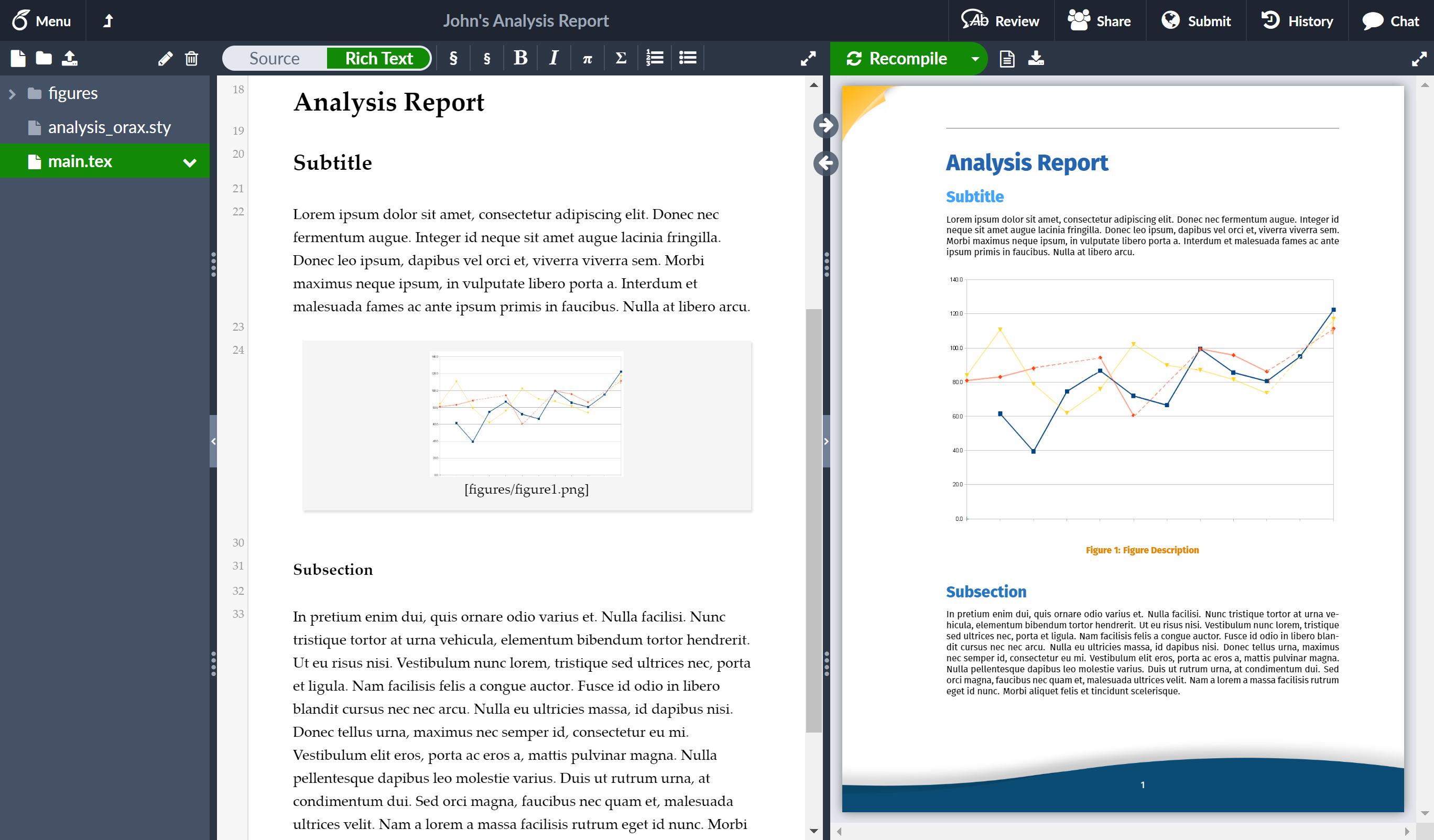Overleaf Page Break
Overleaf Page Break - I am using latex and trying to put the tables and figures at the end of the manuscript so that they occur on separate pages. This will pad the page with extra space at the end of the page. Web forces the current page to end and starts a new one. You can stop pagebreaks caused by \include by placing \let\clearpage\relax before it. There are three commands here that work the same in the example: So, \let\clearpage\relax \include {file1} \include {file2} \include {file3} would put the. \pagebreak [number] breaks the current page at the point it is located. Web we are exploring line breaks. \hfill \break and combining two commands \end{ document } open this example in overleaf. I have tried \pagebreak, \newpage, \displaybreak before each of.
I have tried \pagebreak, \newpage, \displaybreak before each of. I am using latex and trying to put the tables and figures at the end of the manuscript so that they occur on separate pages. So, \let\clearpage\relax \include {file1} \include {file2} \include {file3} would put the. Web forces the current page to end and starts a new one. Web we are exploring line breaks. \pagebreak [number] breaks the current page at the point it is located. You can stop pagebreaks caused by \include by placing \let\clearpage\relax before it. Web \pagebreak tries to make the page the same height as other pages if it's possible (by stretching intervals between paragraphs etc) and \newpage just fills the page with empty space. \hfill \break and combining two commands \end{ document } open this example in overleaf. This will pad the page with extra space at the end of the page.
This will pad the page with extra space at the end of the page. You can stop pagebreaks caused by \include by placing \let\clearpage\relax before it. I am using latex and trying to put the tables and figures at the end of the manuscript so that they occur on separate pages. Web we are exploring line breaks. Web forces the current page to end and starts a new one. So, \let\clearpage\relax \include {file1} \include {file2} \include {file3} would put the. I have tried \pagebreak, \newpage, \displaybreak before each of. \hfill \break and combining two commands \end{ document } open this example in overleaf. There are three commands here that work the same in the example: \pagebreak [number] breaks the current page at the point it is located.
Overleaf Pricing, Features, Reviews & Alternatives GetApp
So, \let\clearpage\relax \include {file1} \include {file2} \include {file3} would put the. There are three commands here that work the same in the example: You can stop pagebreaks caused by \include by placing \let\clearpage\relax before it. Web we are exploring line breaks. I have tried \pagebreak, \newpage, \displaybreak before each of.
Page Break YouTube
I have tried \pagebreak, \newpage, \displaybreak before each of. There are three commands here that work the same in the example: I am using latex and trying to put the tables and figures at the end of the manuscript so that they occur on separate pages. Web \pagebreak tries to make the page the same height as other pages if.
Overleaf Editable LaTeX Templates for IEEE, Elsevier, and Springer
There are three commands here that work the same in the example: Web forces the current page to end and starts a new one. This will pad the page with extra space at the end of the page. Web we are exploring line breaks. \pagebreak [number] breaks the current page at the point it is located.
How to use overleaf for reviewing YouTube
I am using latex and trying to put the tables and figures at the end of the manuscript so that they occur on separate pages. \pagebreak [number] breaks the current page at the point it is located. I have tried \pagebreak, \newpage, \displaybreak before each of. Web \pagebreak tries to make the page the same height as other pages if.
Working Offline in Overleaf GitHub and Dropbox integration Overleaf
This will pad the page with extra space at the end of the page. I have tried \pagebreak, \newpage, \displaybreak before each of. You can stop pagebreaks caused by \include by placing \let\clearpage\relax before it. \hfill \break and combining two commands \end{ document } open this example in overleaf. There are three commands here that work the same in the.
Overleaf Avaliações, preços e classificações GetApp Portugal 2023
\pagebreak [number] breaks the current page at the point it is located. There are three commands here that work the same in the example: I have tried \pagebreak, \newpage, \displaybreak before each of. Web \pagebreak tries to make the page the same height as other pages if it's possible (by stretching intervals between paragraphs etc) and \newpage just fills the.
Introduction to Overleaf YouTube
Web forces the current page to end and starts a new one. I have tried \pagebreak, \newpage, \displaybreak before each of. Web we are exploring line breaks. \hfill \break and combining two commands \end{ document } open this example in overleaf. There are three commands here that work the same in the example:
Try out Overleaf v2 Overleaf, Online LaTeX Editor
Web we are exploring line breaks. So, \let\clearpage\relax \include {file1} \include {file2} \include {file3} would put the. \hfill \break and combining two commands \end{ document } open this example in overleaf. There are three commands here that work the same in the example: I am using latex and trying to put the tables and figures at the end of the.
Overleaf, or how I learned to embrace the lack of a local compiler
This will pad the page with extra space at the end of the page. Web forces the current page to end and starts a new one. So, \let\clearpage\relax \include {file1} \include {file2} \include {file3} would put the. I have tried \pagebreak, \newpage, \displaybreak before each of. \hfill \break and combining two commands \end{ document } open this example in overleaf.
Overleaf Enterprise is perfect for teams who create high quality
Web \pagebreak tries to make the page the same height as other pages if it's possible (by stretching intervals between paragraphs etc) and \newpage just fills the page with empty space. Web we are exploring line breaks. Web forces the current page to end and starts a new one. So, \let\clearpage\relax \include {file1} \include {file2} \include {file3} would put the..
So, \Let\Clearpage\Relax \Include {File1} \Include {File2} \Include {File3} Would Put The.
There are three commands here that work the same in the example: This will pad the page with extra space at the end of the page. \hfill \break and combining two commands \end{ document } open this example in overleaf. I am using latex and trying to put the tables and figures at the end of the manuscript so that they occur on separate pages.
I Have Tried \Pagebreak, \Newpage, \Displaybreak Before Each Of.
Web we are exploring line breaks. Web \pagebreak tries to make the page the same height as other pages if it's possible (by stretching intervals between paragraphs etc) and \newpage just fills the page with empty space. Web forces the current page to end and starts a new one. You can stop pagebreaks caused by \include by placing \let\clearpage\relax before it.








